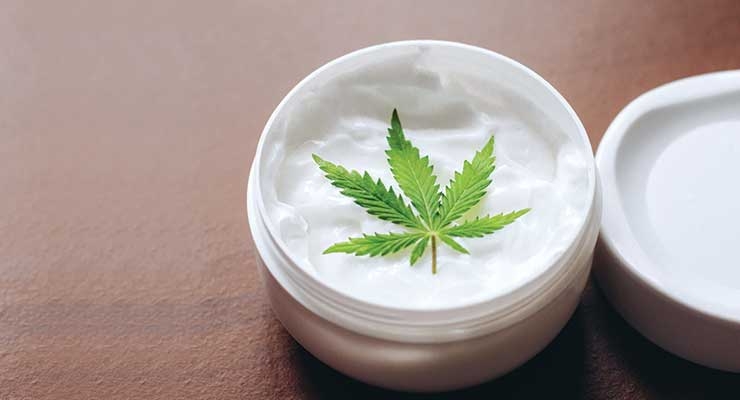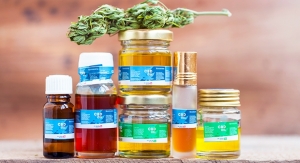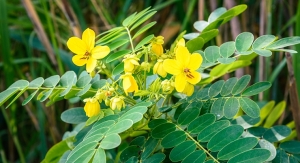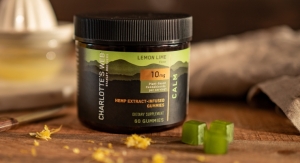By Ally Dai, Correspondent09.03.19
It’s high time for China’s cannabis industry. At least that’s what the investors in China’s stock market think after they have witnessed nearly all stocks related to cannabis, no matter how remotely, hit record highs since the end of last year.
Legality Behind the Rise, and Fall?
With the “Green Rush” continuously making headlines in China this year, the ripple effects are being felt in the domestic beauty market. There are an increasing number of companies striving to introduce cosmetics featuring cannabis to the market. Their logic is quite straightforward: increasing legislative support from the regional governments, apart from the international buzz surrounding cannabis.
Cannabis actually has a long history in China. Called má (meaning “numbness”) or dàmá (with “big”) in Chinese, cannabis (sativa) has been utilized by ancient Chinese for its fiber and seed crop in applications like rope, clothing, paper, and oil as early as 10,000 years ago, and notably, the applications of its seed in Traditional Chinese Medicine (TCM) as a pain reliever or laxative have been recorded in TCM literatures for nearly 2,000 years.
Long before the recent boom, cannabis had already been a huge industry in China. According to the China Rural Statistical Yearbook 2014 by the National Bureau of Statistics, the country is the world’s largest producer of industrial cannabis (hemp), growing nearly half the world’s legal hemp, and leading in cultivation, processing, manufacturing, and exporting.
Currently, two of 34 regions across China—Yunnan in the southwest and Heilongjiang in the northeast—have regional regulations in place, namely Yunnan Provincial Government Decree (No.156, 22/10/2009) and Heilongjiang Anti-narcotic Decree (2017), to guide the legal cultivating and processing of industrial cannabis. With Jilin in the northeast part of the country reported to soon become the third province to deregulate hemp cultivation, it is regarded as an encouraging sign from the authorities to further develop the cannabis industry.
Despite the recent relaxation of legislation, the hemp industry as a whole is still subject to strict narcotic drug laws and enforcement. Compared to three types in many foreign countries, the cannabis in China is classified into two based on its level of tetrahydrocannabinol (THC): industrial cannabis (or hemp, <0.3% THC), and drug cannabis (≥0.3% THC). Aside from hemp fiber and seed crop, the applications of other hemp products, including the currently trending ingredient cannabidiol (CBD), are heavily restricted in China. For example, only six companies are licensed to process hemp flowers and leaves for CBD, compared to over 30 other companies permitted to cultivate hemp.
Furthermore, a recent official announcement by the National Narcotics Control Commission, the governing body responsible for illicit drug control in China, seemed to send a signal contradictory to the local ones. It’s explicitly stated that: 1) China has never approved any hemp application in medicine and food domestically, and CBD is only for exporting; 2) the authority will strengthen the control over industrial cannabis including enforcing surveillances in all processing and manufacturing facilities.
The dampening effect on stock prices of hemp-related companies was immediately felt upon the announcement in April 2019. But the industrial expansion shows no sign of stopping. A string of Chinese firms from various industries are still continuing their work with hemp, including pharmaceutical companies Yatai and Hybo, packaging maker MYS Group, and plant-based ingredient provider Guilin Layn Natural Ingredients, according to state-owned media China Daily.
Beauty Coming to Fuel?
While hemp and its derivatives, CBD in particular, are not permitted in food and medicine, it is in fact legitimate to use hemp ingredients in cosmetics in China. Actually, in China’s Inventory of Existing Cosmetic Ingredients (2015 No.105), there are three hemp-related ingredients listed, namely Cannabis sativa kernel fruit, Cannabis sativa seed oil, and Cannabis sativa leaf extract. While hemp leaf extract contains minor amounts of CBD, the authority so far has not been explicit on its limitation level in cosmetic products.
Eyeing the ever-prosperous beauty market, some local hemp companies, mostly from the pharmaceutical industry, have already made significant strides by introducing hemp-based cosmetics, even before the recent cannabis boom. Two of the most notable examples are HanYi Biopharm Technology (HYBT) and Shanghai CBD Biotechnology.
As a subsidiary of Hanma Investment Group (HMI), a big player in the local hemp industry, HYBT launched a hemp-based skin care brand Cannaclear back in 2017. Targeting a younger generation, the brand claims to be the first of its kind featuring hemp leaf extract for anti-acne, and rich in CBD as well as fatty acids and natural antioxidants from hemp seed to offer “numerous skin care benefits including anti-inflammation, antibiotic, and soothing.”
Soon afterward, Shanghai CBD Biotechnology, another company “dedicated to incorporating hemp ingredients into various products,” also introduced a series of skin care products with the name of “CBD,” despite the fact the products actually contain hemp leaf extract and seed oil. The products sold on its Tmall online store currently range from serums and creams to facial and eye masks, claiming anti-aging/wrinkle, antioxidant, and moisturizing benefits.
Big TCM maker, KPC Pharmaceuticals, recently announced on WeChat in June 2019 the debut of a hemp-leaf-based skin care series for soothing sensitive skin; it also set up two new divisions, Hemp and Comprehensive Health, for future development of hemp products. Just days before the official statement, the company said it established a joint venture with U.S. firm Ananda Industrial to develop cannabidiol medicines for neuropathic pain.
Following the crossover companies, some established players in the cosmetic market are beginning to test the waters. Lonkey Industrial Guangzhou, an HPC company well-known for its fabric detergents in China, is among the first. According to an official statement in May, Lonkey would form a strategic partnership with Hempire Bio-Technology to conduct research on hemp and its derivatives, as well as develop related industrial standards and products. Another statement later on confirmed there are hand soap and body wash products containing hemp seed oil/hemp extracts already in the pipeline, and the R&D and the testing are expected to be completed by November 2019; mass production is expected to begin in March 2020.
Uncertainty Surrounding the Buzz
So will cannabis become the next big thing in China’s beauty market? Most industrial experts, despite being somewhat amazed by the unprecedented surge in the hemp market, remain cautious. On the one hand, many of them are cautiously optimistic that hemp would become popular among the consumers constantly looking for newness in cosmetics, with increasing knowledge and product availability. On the other hand, they also stressed that several major obstacles need to be overcome before hemp becomes a real hit.
For example, at its current stage, China’s hemp industry still lacks a unified national regulatory framework, and falls short of advanced technologies for product processing and quality control. Moreover, there is still much consumer confusion over the psychoactive drug and industrial cannabis, as well as the real skin care benefits of hemp and its derivatives. All of these are actually reflected by the flat sales of hemp-related cosmetics in the market so far.
Therefore, the general consensus is that, with the buzz surrounding cannabis continuing to grow internationally, the future development of hemp-related personal care products in China still remains to be seen, largely depending on local regulations and legislation.
Legality Behind the Rise, and Fall?
With the “Green Rush” continuously making headlines in China this year, the ripple effects are being felt in the domestic beauty market. There are an increasing number of companies striving to introduce cosmetics featuring cannabis to the market. Their logic is quite straightforward: increasing legislative support from the regional governments, apart from the international buzz surrounding cannabis.
Cannabis actually has a long history in China. Called má (meaning “numbness”) or dàmá (with “big”) in Chinese, cannabis (sativa) has been utilized by ancient Chinese for its fiber and seed crop in applications like rope, clothing, paper, and oil as early as 10,000 years ago, and notably, the applications of its seed in Traditional Chinese Medicine (TCM) as a pain reliever or laxative have been recorded in TCM literatures for nearly 2,000 years.
Long before the recent boom, cannabis had already been a huge industry in China. According to the China Rural Statistical Yearbook 2014 by the National Bureau of Statistics, the country is the world’s largest producer of industrial cannabis (hemp), growing nearly half the world’s legal hemp, and leading in cultivation, processing, manufacturing, and exporting.
Currently, two of 34 regions across China—Yunnan in the southwest and Heilongjiang in the northeast—have regional regulations in place, namely Yunnan Provincial Government Decree (No.156, 22/10/2009) and Heilongjiang Anti-narcotic Decree (2017), to guide the legal cultivating and processing of industrial cannabis. With Jilin in the northeast part of the country reported to soon become the third province to deregulate hemp cultivation, it is regarded as an encouraging sign from the authorities to further develop the cannabis industry.
Despite the recent relaxation of legislation, the hemp industry as a whole is still subject to strict narcotic drug laws and enforcement. Compared to three types in many foreign countries, the cannabis in China is classified into two based on its level of tetrahydrocannabinol (THC): industrial cannabis (or hemp, <0.3% THC), and drug cannabis (≥0.3% THC). Aside from hemp fiber and seed crop, the applications of other hemp products, including the currently trending ingredient cannabidiol (CBD), are heavily restricted in China. For example, only six companies are licensed to process hemp flowers and leaves for CBD, compared to over 30 other companies permitted to cultivate hemp.
Furthermore, a recent official announcement by the National Narcotics Control Commission, the governing body responsible for illicit drug control in China, seemed to send a signal contradictory to the local ones. It’s explicitly stated that: 1) China has never approved any hemp application in medicine and food domestically, and CBD is only for exporting; 2) the authority will strengthen the control over industrial cannabis including enforcing surveillances in all processing and manufacturing facilities.
The dampening effect on stock prices of hemp-related companies was immediately felt upon the announcement in April 2019. But the industrial expansion shows no sign of stopping. A string of Chinese firms from various industries are still continuing their work with hemp, including pharmaceutical companies Yatai and Hybo, packaging maker MYS Group, and plant-based ingredient provider Guilin Layn Natural Ingredients, according to state-owned media China Daily.
Beauty Coming to Fuel?
While hemp and its derivatives, CBD in particular, are not permitted in food and medicine, it is in fact legitimate to use hemp ingredients in cosmetics in China. Actually, in China’s Inventory of Existing Cosmetic Ingredients (2015 No.105), there are three hemp-related ingredients listed, namely Cannabis sativa kernel fruit, Cannabis sativa seed oil, and Cannabis sativa leaf extract. While hemp leaf extract contains minor amounts of CBD, the authority so far has not been explicit on its limitation level in cosmetic products.
Eyeing the ever-prosperous beauty market, some local hemp companies, mostly from the pharmaceutical industry, have already made significant strides by introducing hemp-based cosmetics, even before the recent cannabis boom. Two of the most notable examples are HanYi Biopharm Technology (HYBT) and Shanghai CBD Biotechnology.
As a subsidiary of Hanma Investment Group (HMI), a big player in the local hemp industry, HYBT launched a hemp-based skin care brand Cannaclear back in 2017. Targeting a younger generation, the brand claims to be the first of its kind featuring hemp leaf extract for anti-acne, and rich in CBD as well as fatty acids and natural antioxidants from hemp seed to offer “numerous skin care benefits including anti-inflammation, antibiotic, and soothing.”
Soon afterward, Shanghai CBD Biotechnology, another company “dedicated to incorporating hemp ingredients into various products,” also introduced a series of skin care products with the name of “CBD,” despite the fact the products actually contain hemp leaf extract and seed oil. The products sold on its Tmall online store currently range from serums and creams to facial and eye masks, claiming anti-aging/wrinkle, antioxidant, and moisturizing benefits.
Big TCM maker, KPC Pharmaceuticals, recently announced on WeChat in June 2019 the debut of a hemp-leaf-based skin care series for soothing sensitive skin; it also set up two new divisions, Hemp and Comprehensive Health, for future development of hemp products. Just days before the official statement, the company said it established a joint venture with U.S. firm Ananda Industrial to develop cannabidiol medicines for neuropathic pain.
Following the crossover companies, some established players in the cosmetic market are beginning to test the waters. Lonkey Industrial Guangzhou, an HPC company well-known for its fabric detergents in China, is among the first. According to an official statement in May, Lonkey would form a strategic partnership with Hempire Bio-Technology to conduct research on hemp and its derivatives, as well as develop related industrial standards and products. Another statement later on confirmed there are hand soap and body wash products containing hemp seed oil/hemp extracts already in the pipeline, and the R&D and the testing are expected to be completed by November 2019; mass production is expected to begin in March 2020.
Uncertainty Surrounding the Buzz
So will cannabis become the next big thing in China’s beauty market? Most industrial experts, despite being somewhat amazed by the unprecedented surge in the hemp market, remain cautious. On the one hand, many of them are cautiously optimistic that hemp would become popular among the consumers constantly looking for newness in cosmetics, with increasing knowledge and product availability. On the other hand, they also stressed that several major obstacles need to be overcome before hemp becomes a real hit.
For example, at its current stage, China’s hemp industry still lacks a unified national regulatory framework, and falls short of advanced technologies for product processing and quality control. Moreover, there is still much consumer confusion over the psychoactive drug and industrial cannabis, as well as the real skin care benefits of hemp and its derivatives. All of these are actually reflected by the flat sales of hemp-related cosmetics in the market so far.
Therefore, the general consensus is that, with the buzz surrounding cannabis continuing to grow internationally, the future development of hemp-related personal care products in China still remains to be seen, largely depending on local regulations and legislation.



























